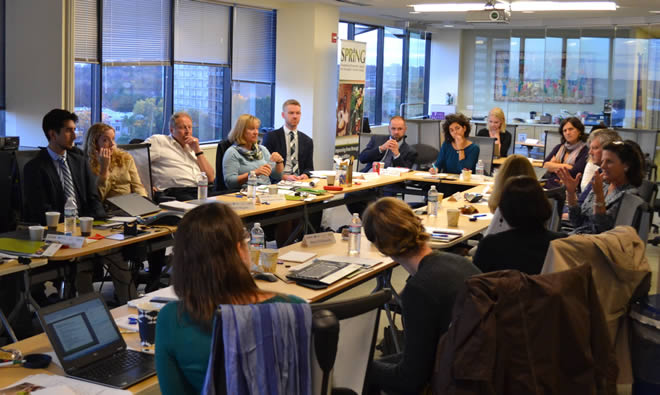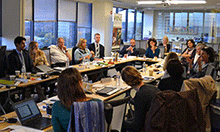
The 2014 Global Nutrition Report emphasized the need for sufficient financial resources for nutrition and pointed out the importance of countries being able to track nutrition funding. One year after, 30 countries were able to report on the preliminary estimates of national budget shares for nutrition in the 2015 Global Nutrition Report. Out of the thirty countries, sixteen carried out the data gathering by themselves, ten were supported by the Institute of Development Studies, two by Results for Development and two by the USAID-funded SPRING project. The work culminated with four regional budget analysis workshops in April 2015 supported by UNICEF on behalf of the UN Network for the SUN Movement. During the workshops, requests were made to accelerate technical support in a number of areas including:
- Provide guidance to standardise the categorisation of “nutrition-specific” and “nutrition-sensitive” interventions.
- Develop recommendations on how to identify allocations for personnel and how to deal with sub-national government finances
- Develop options to harmonise the “weighting” of the interventions, especially the nutrition-sensitive ones.
- Provide recommendations on the next steps. In particular:
- how to use the results of the Budget Analysis Exercise for advocacy and communication;
- how to track actual expenditures;
- how to track off-budget allocations and expenditures;
- how to link the financial tracking with planning and resource mobilisation
In response to these requests, SPRING, Results for Development (R4D), and the Scaling Up Nutrition Movement (SUN) Secretariat have convened a group of global technical experts to provide further guidance to researchers, donors, and government agencies responsible for analyzing nutrition financing (allocations and/or expenditures).
The first meeting of this Technical Consultation group was held in conjunction with the SUN Global Gathering in October 2015 in Milan, Italy. The second meeting, held at SPRING’s Headquarters in Washington, DC, took place in November 2015. The two-day November meeting was useful to better understand what the key methodological limitations are and to identify possible ways forward.
The series will culminate in early 2016 with a multi-day meeting at R4D’s Headquarters to share the group’s findings with a wider audience including regional stakeholders and donor and UN representatives. Consultation participants include representatives from organizations that are currently working to develop nutrition financing guidance, as well as representatives from several countries with experience using such tools for their own nutrition budgeting and expenditure tracking. This joint effort should move the topic of nutrition financing several steps forward by answering to key challenges identified with estimating and tracking nutrition budget and expenditures.
